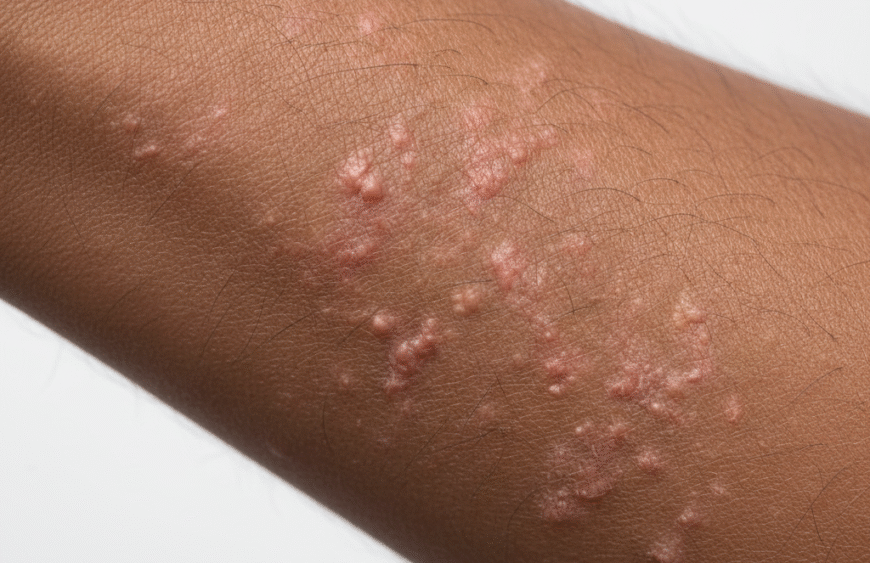Eczema

Eczema: Causes, Symptoms & Effective Treatment Options
Eczema, also known as atopic dermatitis, is a common skin condition that affects millions of people worldwide. It causes redness, itching, dryness, and irritation of the skin, often leading to discomfort and emotional stress. While eczema is not contagious, it requires proper diagnosis and long-term management to prevent flare-ups.
In this article, we’ll explore the causes, symptoms, and treatment options for eczema, and how expert dermatological care can help you live comfortably with this condition.
What is Eczema?
Eczema is a chronic inflammatory skin disorder that usually appears in childhood but can affect people of all ages. It often occurs in cycles, with periods of flare-ups followed by periods of relief.
Common Symptoms of Eczema
- Dry, sensitive skin
- Red or inflamed patches
- Severe itching, especially at night
- Thickened, cracked, or scaly skin
- Small, raised bumps that may leak fluid
- Dark or rough patches on the skin
Eczema commonly affects the hands, elbows, knees, neck, and face, but can appear anywhere on the body.
Causes & Triggers of Eczema
While the exact cause of eczema is unknown, it is believed to result from a combination of genetic, immune system, and environmental factors. Common triggers include:
- Allergies (dust, pollen, food, pet dander)
- Weather changes (dry or humid climates)
- Harsh soaps, detergents, and chemicals
- Stress and lack of sleep
- Certain fabrics (like wool or synthetic fibers)
- Family history of asthma, allergies, or dermatitis
Treatment Options for Eczema
There is no permanent cure for eczema, but with the right care, it can be effectively managed. At Skin Joy Clinic, New Town, Kolkata, Dr. Ismat Ara Khan provides personalized treatment plans including:
- Topical medications: Steroid creams and non-steroidal ointments to reduce inflammation and itching.
- Oral medications: Antihistamines, antibiotics (for infections), or immune-modulating drugs in severe cases.
- Moisturizers & emollients: To keep the skin hydrated and reduce flare-ups.
- Lifestyle modifications: Stress management, proper sleep, and avoiding known triggers.
- Advanced therapies: Phototherapy and targeted biologic treatments for resistant cases.
Tips to Manage Eczema at Home
- Apply fragrance-free moisturizers regularly.
- Avoid scratching to prevent infection.
- Use gentle, hypoallergenic skincare products.
- Take lukewarm baths instead of hot showers.
- Wear soft, breathable cotton clothing.
- Stay hydrated and maintain a balanced diet.
When to See a Dermatologist
If eczema is severe, recurring, or affecting your quality of life, it’s important to seek professional help. Early treatment prevents complications such as infections and permanent skin changes.
At Skin Joy Clinic, Dr. Ismat Ara Khan, board-certified dermatologist, provides safe, effective, and personalized eczema treatments to help you achieve long-term relief.
Bottom Line
Eczema may be a lifelong condition, but with the right medical care and lifestyle adjustments, flare-ups can be controlled. If you’re struggling with eczema symptoms, don’t ignore them — consult Dr. Ismat Ara Khan at Skin Joy Clinic, New Town, Kolkata, for expert guidance and treatment.



